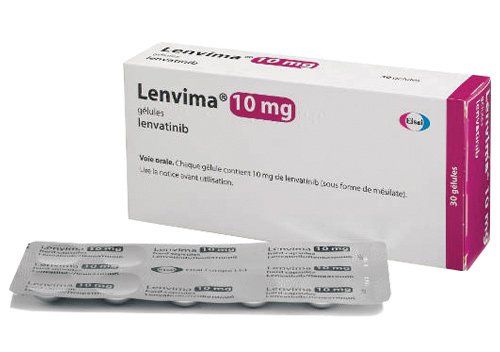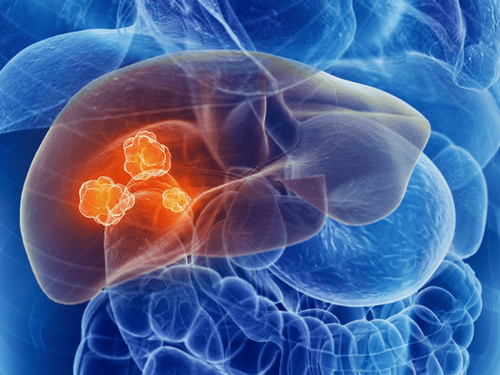This is an automatically translated article.
Hepatocellular carcinoma (HCC) is the most common type of liver cancer, accounting for up to 80% of primary liver cancers, occurring in both adults and children.
1. Primary liver cancer
Liver cancer occurs when liver cells for some reason mutate, begin to grow out of control and form a malignant tumor. There are two types of liver cancer, one is primary liver cancer (caused by the liver) and secondary liver cancer (caused by metastases from other organs to the liver).
Primary liver cancer is further subdivided into 4 types according to the point of origin of cancer in the liver, including:
Hepatocellular carcinoma (or HCC cancer): liver cells, more common in men and at higher risk in people with cirrhosis. This is the most common type of liver cancer. Cholangiocarcinoma, also known as bile duct cancer: It originates in the bile ducts in the liver. Hepatoblastoma: Common in children under 4 years of age. Malignant hemangioma: Caused by blood vessels in the liver, with a very rapid growth rate. In particular, HCC is the 4th most common cancer in the world and one of the 2 leading causes of death in Asia.
2. What is HCC liver cancer?
Hepatocellular carcinoma HCC is the most common malignancy in the liver. This is cancer that starts in the liver (primary liver cancer), as opposed to cancer that has spread from other organs to the liver (secondary liver cancer).
According to statistics, every year about 781 thousand people die from liver cancer worldwide, especially HCC primary liver cancer. This number in Vietnam is in the very high group because our country is considered an area with many risk factors for liver cancer, mainly men who are addicted to alcohol and tobacco. There are two main causes of HCC liver cancer: viral hepatitis and aflatoxin toxin.
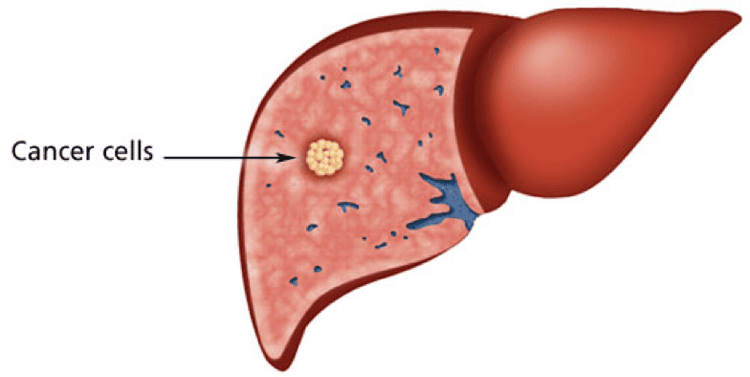
Đa số các trường hợp ung thư gan là ung thư biểu mô tế bào gan (HCC)
3. Subjects at risk of HCC . liver cancer
HCC liver cancer is likely to occur in the following groups of people:
3.1. Hepatitis B
HBV infection increases the risk of developing HCC by 100 times. About 80% of HCC cases in the world and about 70% in Vietnam are caused by HBV (the virus that causes hepatitis B). On average, about 0.5% of people with chronic HBV infection each year develop HCC.
For those who have ever had hepatitis B or have not been vaccinated against hepatitis B, the risk of HCC is also higher than for other people. In these cases, to screen for cancer, the doctor will have to follow up closely, perform an abdominal ultrasound once a year. In addition, testing the amount of alpha-fetoprotein is also an effective way to screen for liver cancer for this group of subjects.
3.2. Hepatitis C
Hepatitis C virus (HCV) is responsible for about 30 - 50% of HCC cases in the US, and this number in Vietnam is about 7%.
If you have hepatitis C, you will most likely develop liver cancer 10 years after diagnosis. Therefore, people who already have hepatitis C should periodically screen for liver cancer to prevent disease and promptly handle possible abnormalities.
3.3. Cirrhosis
Approximately 80% of patients with HCC have cirrhosis, so risk factors for cirrhosis are also considered risk factors for HCC.
3.4. Alcohol addiction
The habit of drinking a lot of alcohol is the most harmful agent to the body for Vietnamese people, when the rate of alcoholism belongs to high levels. Drinking alcohol regularly is the cause of cirrhosis of the liver. On the other hand, alcoholic cirrhosis accounts for about 15% of HCC liver cancer cases. Toxic substances in these drinks can silently destroy liver cells, leaving heavy consequences for the whole body, increasing the risk of malignant cells in the liver.
3.5. Fat
People who are overweight or obese have a higher risk of cancer than others. In particular, the incidence of liver cancer related to obesity and diabetes is increasing faster in recent years. Therefore, if you are a person with excess weight, you should pay more attention to your health check and periodic liver cancer screening.
3.6. Some genetic diseases
Certain genetic conditions also cause cirrhosis and significantly increase the risk of developing HCC, including: Hemochromatosis, hereditary tyrosineemia, and hemochromatosis. active autoimmune chronic hepatitis.3.7. Other factors
The risk of HCC is also increased for the following groups of patients: infection with aflatoxin B1 (secreted by a fungus called Aspergillus), androgenic steroid proliferation, thorotrast (contrast), oral contraceptives, and patients with non-alcoholic fatty liver disease.
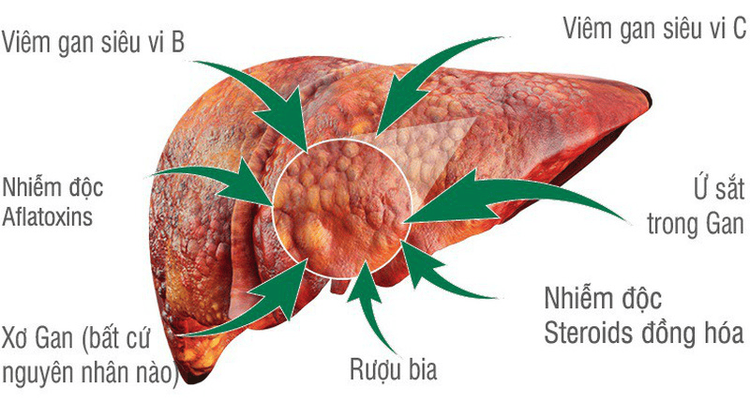
Một số nguyên nhân dẫn tới ung thư gan
4. Signs of HCC . primary liver cancer
Here are the common signs of HCC liver cancer :
4.1. Abdominal Abdominal Abdominal Pain Abdominal pain in the lower right abdomen (where the liver is located) can be caused by liver cancer. However, if pain appearing in this area is also likely to be a sign of other diseases, it is advisable to have an early examination to determine the cause and treat it promptly.
4.2. Yellow eyes and skin One of the manifestations of HCC liver cancer is yellowing of the eyes and skin. In addition, when these symptoms appear, accompanied by signs of itching, it is very likely that the patient is suffering from liver cancer.
4.3. Unusual weight loss If you do not diet, but the body still loses weight for no reason, it is very likely that this is a manifestation of a liver disorder. This is the right time to examine and diagnose your current health condition, and above all to screen for liver-related problems, especially HCC.
4.4. Anorexia, fast satiety The growth of liver cancer cells makes the patient feel not good to eat, and the increase in abdominal fluid secretion will make the patient feel full quickly.
Liver cancer, if detected late, will be difficult to treat effectively. Therefore, regular screening is always necessary to have a complete health.
5. Screening and early detection of liver cancer at Vinmec
The package of screening and early detection of liver cancer of Vinmec Hospital includes:
Screening for the risk of liver cancer Detecting liver cancer early so that appropriate and timely treatment measures can be taken. Vinmec is the leading prestigious address in liver cancer screening with advantages such as:
Patients are examined and consulted with a team of highly specialized and experienced doctors in the Oncology specialty. Comprehensive professional cooperation with domestic and international hospitals: Singapore, Japan, USA, etc. Comprehensive treatment and care, multi-specialty coordination towards individualizing each patient. Having a full range of specialized facilities for diagnosis and staging before treatment: Endoscopy, CT scan, PET-CT scan, MRI, histopathological diagnosis, gene-cell testing, .. There are a full range of mainstream cancer treatment methods: surgery, radiation therapy, chemotherapy, stem cell transplant...
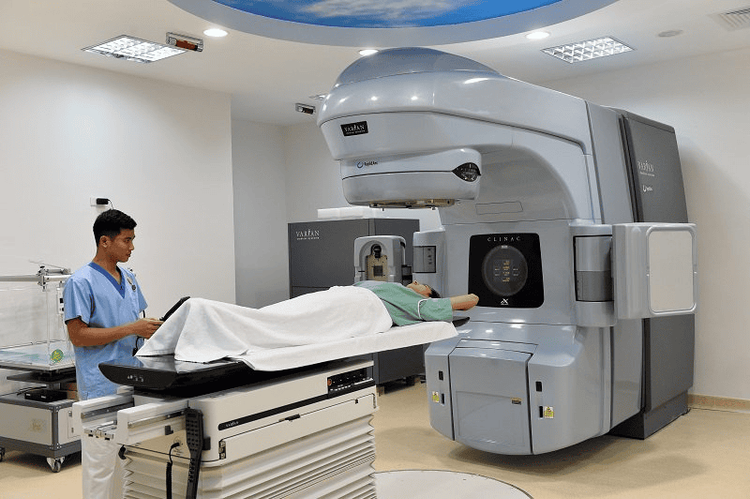
Vinmec đẩy lùi ung thư gan bằng công nghệ xạ trị siêu chuẩn
Please dial HOTLINE for more information or register for an appointment HERE. Download MyVinmec app to make appointments faster and to manage your bookings easily.




